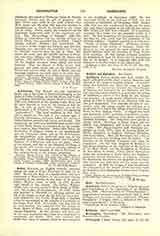

Arden, EDWARD, an English Catholic, executed during the reign of Queen Elizabeth, b. 1542 (?); d. 1583. He was the head of a family which had been prominent in Warwickshire for six centuries, having succeeded to the estates on the death of his grandfather, Thomas Arden, in 1563. In 1575 he was high sheriff of the county. His father, William Arden, was a second cousin of Mary Arden, of Wilmcote, the mother of Shakespeare. In 1583, Arden was indicted in Warwick for plotting against the life of the Queen, as were also his wife, his son-in-law, John Somerville, and Father Hugh Hall, a chaplain whom he maintained in the disguise of a gardener at his home, Park Hall. Somerville, who was said to be weak-minded, was incensed over the wrongs of Mary, Queen of Scots, and openly uttered threats against Elizabeth. He was arrested and when put on the rack implicated the others in a conspiracy to assassinate the Queen. They were arrested and Arden was taken to London, where he was arraigned in the Guildhall, December 16, 1583. He was convicted, chiefly on the evidence of Hall, and was executed at Smithfield, December 30, 1583. Somerville, who was also condemned to die on the same day, was found strangled in his cell the day before. Mrs. Arden and Hall were released. It is generally conceded that Arden was the innocent victim of a plot. He died protesting his innocence and declaring that his only crime was the profession of the Catholic religion. Dugdale, quoting from Camden’s “Annals of Queen Elizabeth“, attributes Arden’s prosecution to the malice of Leicester, whose displeasure he had incurred by open criticism of the Earl’s relations with the Countess of Essex before their marriage. He had further irritated Leicester by disdaining to wear his livery and by denouncing him as an upstart. It is supposed that Hall was suborned to involve Arden in the alleged plot.
THOMAS GAFFNEY TAAFFE

